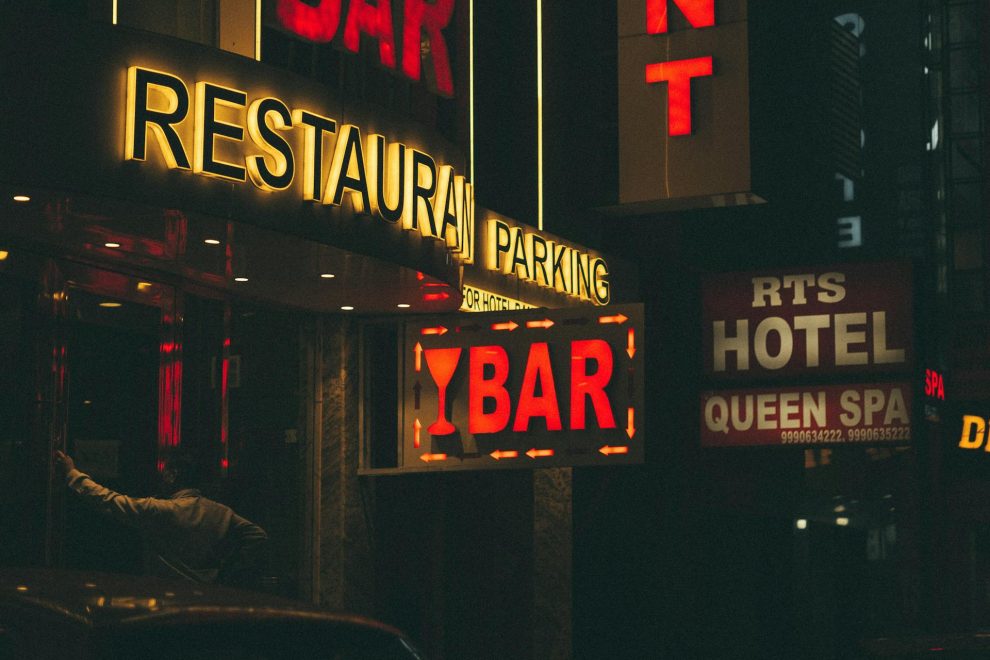The hospitality industry, hotels and resorts, restaurants, cafes and travel services is one of the most competitive industries globally. In today’s digital age having an online presence is a must for businesses in this industry.
Need help in your hospitality business? Click here to learn more.
Marketing your hospitality business online can get you more guests, more bookings and more revenue. Here’s how you can do it.
1. Build a User Friendly Website
Your website is the face of your hospitality business online. It has to reflect your brand, be seamless and make it easy for potential guests to find what they are looking for. Here’s what to focus on:
- Design: Your website should look good, reflect your brand and ambiance. Use high quality images of your property, rooms, restaurant or other amenities.
- Navigation: Make sure the site is easy to navigate, with a clear menu, quick access to essential info (booking options, location, contact details) and a logical flow between pages.
- Mobile Optimization: With more and more people using mobile devices to book travel, your website must be mobile friendly. Make sure fast loading times and responsive design.
- Online Booking System: Integrate an easy to use booking system that allows guests to book directly on your website. This makes it more convenient for them and increases your chances of converting visitors into paying customers.
- Search Engine Optimization (SEO): Optimize your website content with relevant keywords (e.g. “best hotel in [your city]”, “luxury resort near [landmark]”) to improve your search engine rankings. This will get your site to appear in search results when potential guests are looking for accommodations or services in your area.
2. Social Media Marketing
Social media platforms are powerful tools to connect with potential guests, promote your services and build your brand. Here’s how you can use them:
- Choose the Right Platforms: Focus on platforms that are visually driven and allow you to showcase your business. Instagram, Facebook and Pinterest are great for hospitality businesses where imagery plays a big role in influencing customers.
- Create Engaging Content: Post high quality photos and videos of your property, food, events and other services. Use storytelling to connect with your audience. For example, post behind the scenes content, guest experiences and staff profiles.
- Use Hashtags: Use popular and location specific hashtags to increase the visibility of your posts. For example a hotel in London could use #VisitLondon, #LuxuryHotelLondon etc. to reach a wider audience.
- Run Social Media Ads: Both Facebook and Instagram have powerful ad targeting tools. You can run ads to promote your business, target specific demographics and even retarget users who have visited your website but didn’t book.
- Engage with Your Audience: Respond to comments and messages promptly. Engaging with your audience helps build a community around your brand and increases customer loyalty.
3. Google My Business (GMB)
Google My Business (GMB) is a must have for local SEO and online visibility. If someone searches for a hotel, restaurant or any other hospitality service in your area, your GMB profile can get you to show up in local search results. Here’s how to make the most of it:
- Optimize Your Profile: Make sure your profile is complete with accurate business information, address, phone number, website link and business hours. Add a compelling description of your business and use relevant keywords.
- Add High Quality Images: Photos of your property, food or amenities can make a big impact on potential guests. Use high resolution images that showcase the best of your business.
- Collect Reviews: Encourage happy guests to leave reviews on your GMB profile. Positive reviews can increase your credibility and boost your ranking in local search results.
- Respond to Reviews: Show that you value customer feedback by responding to both positive and negative reviews. This demonstrates excellent customer service and builds trust with potential guests.
4. Pay-Per-Click (PPC) Advertising
PPC advertising is a cost effective way to drive targeted traffic to your website. You pay for each click your ad receives making it a flexible option for businesses of all sizes. Here’s how to incorporate it in your hospitality marketing strategy:
- Google Ads: With Google Ads you can target specific keywords related to your business. For example a hotel in New York could bid on keywords like “luxury hotel in New York” or “best hotel deals in New York”. Make sure your ad copy is compelling and leads to a well optimised landing page.
- Retargeting Ads: Retargeting allows you to show ads to people who have already visited your website but didn’t book. This keeps your business top of mind and increases the chances of converting visitors into guests.
- Facebook and Instagram Ads: Both platforms have robust advertising options with advanced targeting capabilities. You can target ads based on demographics, interests, location and more.
5. Influencers and Bloggers
Influencer marketing is a great way to reach a wider audience especially if you collaborate with influencers who specialise in travel, food or lifestyle content. Here’s how to do it:
- Identify Relevant Influencers: Look for influencers whose audience matches your target market. They could be travel bloggers, food critics or lifestyle influencers with a large following.
- Offer a Free Stay or Meal: In exchange for a review or feature on their blog or social media, invite influencers to try your hospitality services. This can get you great exposure and help you reach a new audience.
- Leverage User-Generated Content: Encourage guests to share their experience on social media and tag your business. Reposting user generated content on your social media channels not only builds credibility but also creates a sense of community around your brand.
6. Email Campaigns
Email marketing is one of the best ways to nurture relationships with past, current and potential guests. A well crafted email campaign can keep you in touch with your audience and keep them informed about your offers and updates.
- Build an Email List: Encourage website visitors and guests to sign up to your newsletter. Offer incentives like discounts or exclusive offers in exchange for their email address.
- Segment Your Audience: Divide your email list into segments based on factors like previous stays, interests or location. This allows you to send targeted messages to each group.
- Create Compelling Content: Your emails should offer value to the recipient. This could be in the form of special offers, travel tips or updates about your business. Use eye catching images and concise, engaging copy to grab their attention.
- Automate Campaigns: Use email marketing tools to automate your campaigns. For example send a welcome email to new subscribers, a thank you email after a guest’s stay or a re-engagement email to those who haven’t visited in a while.
7. Online Travel Agencies (OTAs)
Online Travel Agencies (OTAs) like Booking.com, Expedia and TripAdvisor can increase your online visibility. While they charge a commission on bookings, they also expose your business to a huge audience of travellers.
- Optimize Your Listings: Make sure your listings on OTAs are complete and optimised with high quality images, detailed descriptions and accurate information. The better your listing, the more likely you are to get bookings.
- Respond to Reviews: Just like Google My Business, responding to reviews on OTAs is key. Acknowledge positive reviews and address negative feedback professionally to boost your reputation.
- Monitor Performance: Keep an eye on your performance on OTAs and use the data to refine your strategy. Look at metrics like click through rates, conversion rates and customer reviews.
8. Exclusive Online Offers
Promotions and exclusive online offers can drive more traffic to your website and social media platforms. They can also encourage potential guests to book direct with you instead of through OTAs and save you commission fees.
- Create Packages: Offer packages that combine accommodation, meals or activities. For example a romantic getaway package could be a luxury suite, breakfast in bed and a couples massage.
- Promo Codes: Offer promo codes that give guests a discount when they book direct through your website. Promote these codes on your social media, email newsletters and PPC ads.
- Limited Time Offers: Create a sense of urgency with limited time offers. This could be a discount on a certain number of rooms or a special rate for bookings made within a certain time frame.
9. Reputation Management
In the hospitality industry reputation is everything. Potential guests often book based on reviews and ratings. Here’s how to manage and improve your online reputation:
- Monitor Online Reviews: Monitor reviews on TripAdvisor, Google and OTAs regularly. Respond promptly and professionally to positive and negative feedback.
- Encourage Positive Reviews: Encourage happy guests to leave reviews. You can do this through follow up emails or by offering incentives like discounts on future stays.
- Address Negative Feedback: Negative reviews are inevitable but how you handle them can make a difference. Apologise for any issues, address the concerns and offer a solution or compensation if applicable.








Add Comment